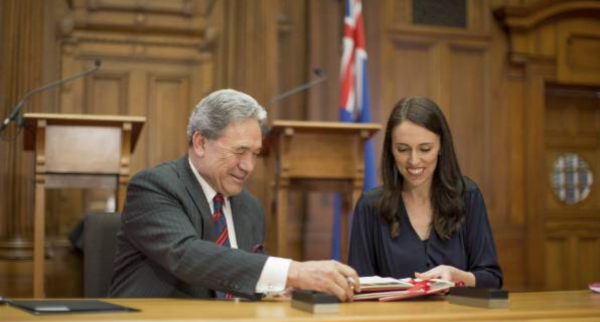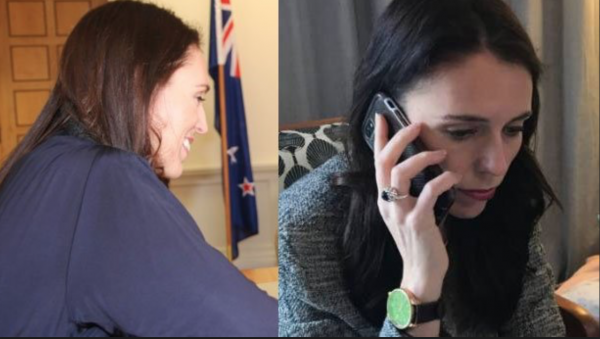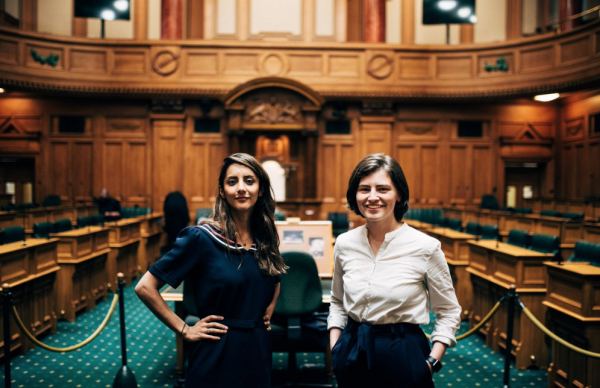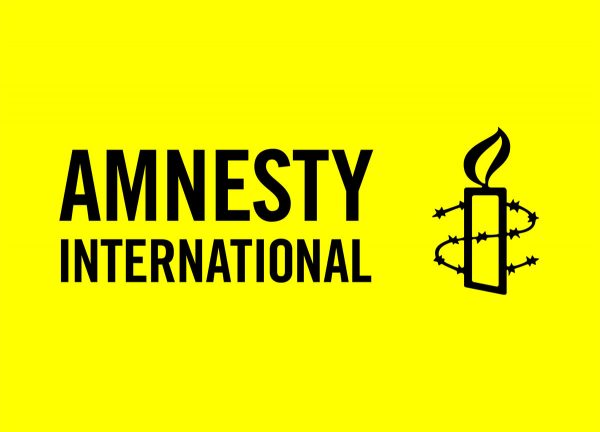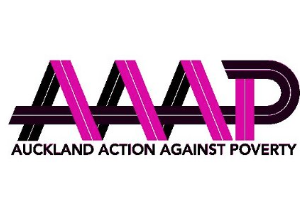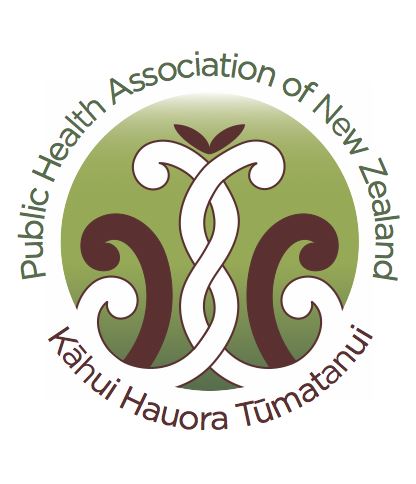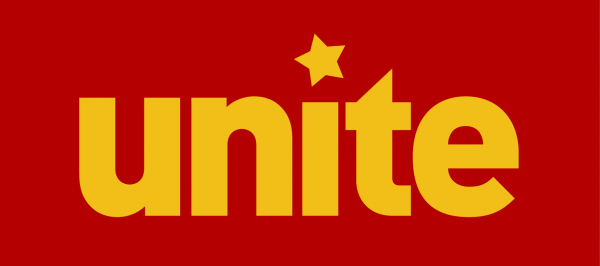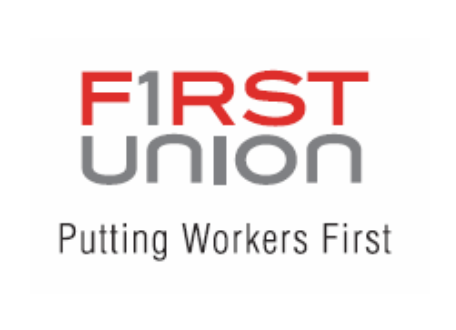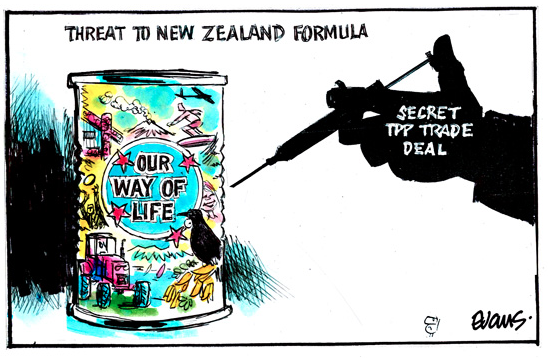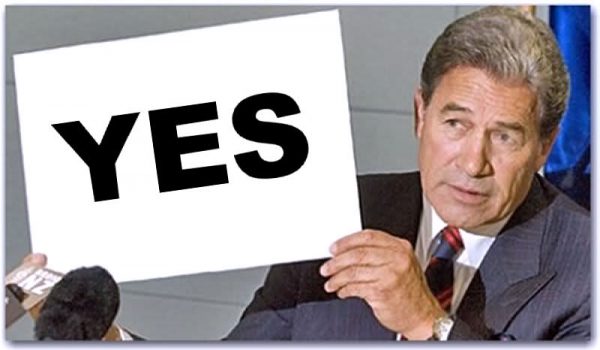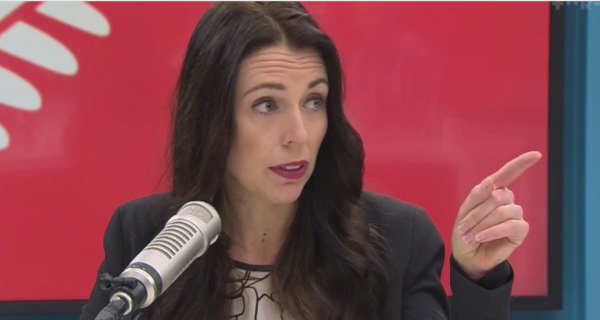
I want to start by saying thank you
During the election campaign, my rallying cry was “Let’s do this’
We wanted to capture both that there was a huge amount we needed to change to place NZ on a better path. But we also wanted to capture the sentiment, that, together, change was possible.
With your help, and the support of voters, change is not just possible, it’s real.
Now, we have the opportunity to deliver on our commitments.
We can deliver affordable, healthy homes.
We can deliver properly resourced public services.
We can deliver an environment we can be proud of.
And – delegates – we can also have decent work and wages for all New Zealanders.
The CTU and your member unions formed a crucial part of our campaign for positive change. Thousands of union members supported Labour’s campaign and took part in our effort to talk to voters about the issues, win their support, and get them to turn out to vote.
Thank you for everything you’ve done.
You know, during the campaign I said, more than once I should add, that:
We have the opportunity at this election to turn the page to New Zealand’s future.
It’s the point where we will either continue to be a country that leaves the next generation better off than the last, or where for the first time, we will see a generation that starts to go backwards.
No one wants that. Not our grandparents. Not our parents. Not anyone. Not when we know we can do better.
We can be better than a country that is ranked amongst the worst in the developed world for homelessness, and where our homeownership rates continue to slide.
We can be better than a country where child poverty is starting to become normalised, and where we barely flinch when we hear the number – 290,000.
We can be better than a country where half a million Kiwis didn’t go to the doctor because they couldn’t afford it, and where our mental health statistics are staggering.
And we can be better than a country where you can’t even swim in our rivers without getting sick.
We can be better.
And now is our chance to prove it.
Governing, together
Building a better New Zealand for all our people won’t be easy. It will require all of us, working together.
Just like we needed to work together to win the election, we now need to work together to make the changes we need.
I can’t fix the housing crisis alone but we can, together.
I can’t end child poverty alone but we can, together.
I can’t generate higher incomes alone but we can, together.
Together, we can make this country the best place in the world to live.
Unions, NGOs, businesses, councils, iwi, and other community groups all have their role to play, with our government, to build a better New Zealand.
I have always said that I believe what unites us is stronger than what divides us. And the campaign has only confirmed that belief to me, and so did the negotiations.
During those talks it was clear to me that despite our position as individual parties, we had a strong consensus on major issues of importance.
This government is backed by a higher percentage of voters than the average MMP government, and a higher share of the vote than any First Past the Post government managed after 1949. There will of course, as is the case with any election, people who didn’t choose to support the parties who make up the Government
Here is my promise to them and every New Zealander: whether you voted or not, and no matter who you voted for, I will be a Prime Minister for all.
A very important part of my job as Prime Minister transcends party politics. I know my job is to fight for every New Zealander’s rights; every New Zealander’s interests; and every New Zealander’s quality of life.
I take that part of my role very seriously. My job is to have every New Zealander’s back, and I will.
As part of that commitment, I also want a more inclusive and transparent Parliament. That’s why I invite opposition parties to be part of building a better, fairer New Zealand.
I know that they, too, want a better future for New Zealand.
I hope they will help drive forwards our plan for positive change, rather than attacking MMP from the sidelines. I hope they will choose to focus on what unites us, rather than what divides us.
Because there is so much to do.
Our first hundred days
We are going to hit the ground running, and we’re starting with a suite of issues that really matter to working New Zealanders.
In fact, we’ve already ticked off one of our 100 day commitments. Andrew Little will be Minister Responsible for Pike River Re-entry, in keeping with the commitment I made to the families in August.
Justice for Pike is not just about those 29 men and their families. It is about all working people, and the right to return home safe to your loved ones at the end of the day.
We will also push ahead with other quick initiatives for working people in our first hundred days.
Our wages need to keep moving, s
o we’ll increase the minimum wage to $16.50 to take effect on the First of April.
That will be the first step to raising the minimum wage to $20 an hour.
We’ll restore the right to meal and rest breaks, and we’ll reverse attacks on work rights by taking important steps, such as:
restoring the duty to conclude bargaining,
restoring the right of union access to members at their workplace,
removing the ability of employers to deduct pay for work to rule and other low-level protest action,
tightening the rules regarding pass-on
and bringing back the right of workers to initiative collective bargaining.
We’ll also work to pass the legislation to extend Paid Parental Leave to 26 weeks – a Bill that Parliament has already passed once and was unfairly vetoed.
We’re also getting moving on housing.
We will introduce a law to ban overseas speculators from buying existing homes, and we’ll do it by Christmas.
Too many kids are living in homes that make them sick, so we’ll pass the Healthy Homes Guarantee Bill to ensure every rental home is healthy, warm, and dry.
We’ll stop the state house sell-off and begin work on the KiwiBuild programme.
Education needs to be more accessible, so we’ll focus on passing our education package by 1 January 2018.
Too many families and older New Zealanders are struggling, so we’ll pass into law our families package.
To help secure super at 65, we’ll resume contributions to the Superannuation Fund.
We need to take action on the environment, so we will lock in our goal of zero carbon emissions and begin setting up the independent climate commission – while ensuring a Just Transition for working people and their communities.
We need to look after the health and wellbeing of our people, so we will set up a ministerial inquiry into the mental health crisis, and also, into the abuse of children in state care.
And all of that, all of it, we will get on and do in our first 100 days.
It is the start of our programme to make this a better country for everyone. A country that gives everyone a shot at achieving their dreams and doesn’t let anyone fall through the cracks.
Work rights plan
I’m am thrilled to announce that Iain Lees-Galloway will be Minister for Workplace Relations and Safety. He brings with him an enormous positivity and can-do attitude. He has a record of building bridges and finding common ground which is going to be central to our approach.
I know that Iain will work together in a spirit of positivity and partnership – with both unions and business – to establish a fairer set of employment policies that deliver jobs, higher wages, and a more productive economy.
It is in everyone’s interest for families to have higher incomes, for working people’s lives to be better, for our economy to be more efficient and productive.
There will always be those that oppose change – who are comfortable in a status quo that is delivering for fewer and fewer people. But I know they are not the majority. I know most businesses want a fair set of employment policies.
They know that we need decent wages if they are going to have customers for their products. They know that we need to boost our productivity, and low wages are a barrier to that because they discourage investment in training and capital. They know that we need a government that invests in skills and education.
I am aware that, while the majority of workers are employed by big, profitable companies, that some small businesses will feel the effects of larger staff costs more acutely. That’s why one of the tasks for the Tax Working Group will be to look at models overseas for lower taxation for small businesses.
For too long, a line has been pushed that decent wages and strong economic growth don’t go together. I simply don’t buy into baseless claims that paying people well means there will be fewer jobs. In fact, the overwhelming weight of evidence is that strong wages for all working people help to boost growth and create jobs.
We only need to look to our own history. Over the past 30 years, the share of the economy going to wages and salaries has declined by billions of dollars. Yet, this hasn’t produced a robust economy and the trickle-down effect that was promised.
Instead, we have GDP per capita which is barely growing, we have unemployment stuck stubbornly at 5% when it should be below 4%, and our economy has become more geared towards speculation and extraction, rather than value-added exports.
We know that, when business and workers join together, we can achieve great things. Just look at the Air New Zealand agreement – the model of high performance, and high engagement cooperation between workers and employers. Unions and the ,business took a situation where a company was losing money and looking to cut jobs, and turned it around so that jobs were saved, they were made more productive, and the future of the business was transformed.
Low wages aren’t simply a problem for low-wage workers, they are a problem for businesses and the economy as a whole.
Fair Pay Agreements
I want to see an end to the race to the bottom on wages. Our plans for Fair Pay Agreements are the start of changing that.
I know so many businesses are frustrated that if they pay their staff well, they are constantly at risk of being undercut by the few businesses who make their way by paying as little as possible. Businesses should be competing on innovation, on offering the best product, not by keeping wages low.
Instead, right now we have bus drivers in Wellington set to lose their jobs or take pay cuts. The company they work for has lost the contract to a different firm, which has offered a lower cost to the regional council on the basis of reducing staff pay packages. That’s not the way forward for New Zealand.
I look, instead, to the care and support workers’ agreement – which is really a de facto Fair Pay Agreement – that has ended decades of wage discrimination against a low-pay, overwhelmingly female workforce. This was a success, one to be celebrated.
There is a lot of detail to be worked through – to ensure Fair Pay Agreements deliver meaningful improvements in wages, while also maintaining the flexibility that employers and workers want.
We purposely did not seek to lock in the details of these agreements from opposition. It is work that must be done by government, businesses, and unions, sitting around the table together. That is exactly the way I intend to work as Prime Minister. And it’s a relationship I look forward to deepening even further.
Conclusion
One of the great things about the way we do politics in New Zealand is we no longer have a single party, governing alone with as little as 35% of the vote, as happened before MMP.
MMP has forced a culture of cooperation into politics and ensured the will of the majority of voters is reflected in the incoming government.
I want this government to take that culture of cooperation to the next stage. Every sector of New Zealand society, every party, every organisation, every individual, can play their part in helping with our positive plan to make this an even better country.
We will build a better New Zealand – with decent homes for all, with the schools and hospitals we need, with an environment we can cherish, and with decent, well-paying work for our people – and we will build it together.
Let’s do this.


